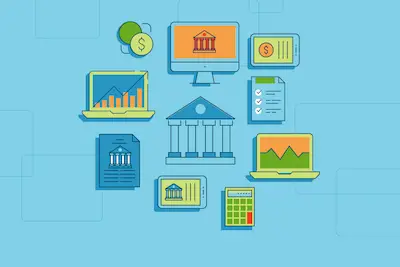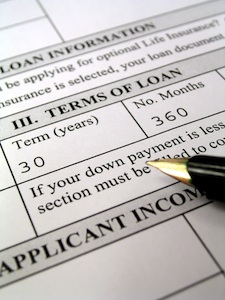Possibilities are, you've seen commercials boasting the benefits of a reverse mortgage: "Let your house pay you a regular monthly dream retirement earnings!" Sounds fantastic, ideal? These claims make a reverse home mortgage sound nearly too great to be true for senior property owners. However are they? Let's take a closer look. A reverse mortgage is a type of loan that utilizes your house equity to provide the funds for the loan itself.
It's generally an opportunity for senior citizens to tap into the equity they've developed up over many years of paying their home mortgage and turn it into a loan on their own. A reverse home mortgage works like a regular home mortgage because you need to apply and get approved for it by a loan provider.
However with a reverse Click to find out more mortgage, you do not make payments on your home's principal like you would with a routine mortgageyou take payments from the equity you've developed. You see, the bank is lending you back the cash you have actually already paid on your house but charging you interest at the very same time.
Appears easy enough, right? But here comes the cringeworthy fact: If you die before you have actually sold your home, those you leave are stuck with two alternatives. They can either pay off the full reverse mortgage and all the interest that's stacked up for many years, or surrender your house to the bank.
Like other kinds of home mortgages, there are various types of reverse home mortgages. While they all generally work the very same way, there are 3 main ones to learn about: The most typical reverse mortgage is the House Equity Conversion Home Loan (HECM). HECMs were produced in 1988 to help older Americans make ends meet by enabling them to take advantage of the equity of their homes without needing to move out.
The Best Guide To Who Owns Bank Of America Mortgages
Some folks will use it to pay for expenses, trips, house remodellings or even to settle the remaining amount on their regular mortgagewhich is nuts! And the consequences can be big. HECM loans are kept a tight leash by the Federal Real Estate Administration (FHA.) They don't desire you to default on your home loan, so since of that, you will not receive a reverse mortgage if your home is worth more than a specific amount.1 And if you do receive an HECM, you'll pay a substantial home loan insurance premium that secures the lending institution (not you) against any losses - which of the following statements is not true about mortgages.
They're provided from independently owned or operated companies. And because they're not managed or guaranteed by the government, they can draw property owners in with guarantees of greater loan amountsbut with the catch of much higher rate of interest than those federally guaranteed reverse mortgages. They'll even offer reverse home mortgages that allow property owners to obtain more of their equity or include houses that exceed the federal maximum quantity.
A single-purpose reverse mortgage is provided by federal government firms at the state and local level, and by not-for-profit groups too. It's a type of reverse home loan that puts guidelines and constraints on how you can utilize the cash from the loan. (So you can't spend it on an expensive getaway!) Generally, single-purpose reverse home mortgages can just be utilized to make property tax payments or spend for home repairs.
The thing to bear in mind is that the loan provider has to Learn here approve how the money will be used before the loan is given the OK. These loans aren't federally guaranteed either, so loan providers don't have to charge home mortgage insurance coverage premiums. But since the cash from a single-purpose reverse home mortgage needs to be utilized in a specific way, they're typically much smaller in their quantity than HECM loans or exclusive reverse mortgages.

Own a paid-off (or a minimum of substantially paid-down) house. Have this house as your main residence. Owe no federal financial obligations. Have the capital to continue paying real estate tax, HOA fees, insurance, upkeep and other home expenses. And it's not just you that needs to qualifyyour home also has to fulfill certain requirements.
Getting Go to this website The What Is The Current Interest Rate For Mortgages? To Work
The HECM program also permits reverse home mortgages on condos approved by the Department of Real Estate and Urban Advancement. Prior to you go and sign the papers on a reverse mortgage, inspect out these four significant downsides: You may be thinking of securing a reverse mortgage since you feel confident loaning versus your home.
Let's simplify like this: Think of having $100 in the bank, however when you go to withdraw that $100 in money, the bank just gives you $60and they charge you interest on that $60 from the $40 they keep. If you wouldn't take that "offer" from the bank, why in the world would you desire to do it with your home you've invested years paying a mortgage on? However that's exactly what a reverse mortgage does.
Why? Since there are charges to pay, which leads us to our next point. Reverse home loans are filled with extra expenses. And most debtors choose to pay these costs with the loan they're about to getinstead of paying them out of pocket. The important things is, this costs you more in the long run! Lenders can charge up to 2% of a house's worth in an paid up front.
So on a $200,000 home, that's a $1,000 annual cost after you've paid $4,000 upfront obviously!$14 on a reverse mortgage are like those for a routine home mortgage and consist of things like house appraisals, credit checks and processing costs. So before you understand it, you have actually drawn out thousands from your reverse mortgage before you even see the very first penny! And considering that a reverse mortgage is just letting you use a portion the worth of your home anyhow, what takes place once you reach that limitation? The cash stops.

So the quantity of cash you owe increases every year, on a monthly basis and every day till the loan is paid off. The advertisers promoting reverse mortgages enjoy to spin the old line: "You will never ever owe more than your home is worth!" But that's not exactly true because of those high interest rates.
Little Known Questions About How Many Mortgages In The Us.
Let's say you live up until you're 87. When you pass away, your estate owes $338,635 on your $200,000 home. So instead of having a paid-for house to pass on to your enjoyed ones after you're gone, they'll be stuck to a $238,635 expense. Opportunities are they'll need to offer the house in order to settle the loan's balance with the bank if they can't pay for to pay it.
If you're spending more than 25% of your earnings on taxes, HOA costs, and family bills, that suggests you're house bad. Reach out to among our Backed Local Service Providers and they'll assist you navigate your alternatives. If a reverse home mortgage lender informs you, "You will not lose your house," they're not being straight with you.
Consider the factors you were considering getting a reverse mortgage in the very first location: Your spending plan is too tight, you can't afford your day-to-day bills, and you don't have anywhere else to turn for some extra cash. Suddenly, you've drawn that last reverse home loan payment, and after that the next tax costs comes around.